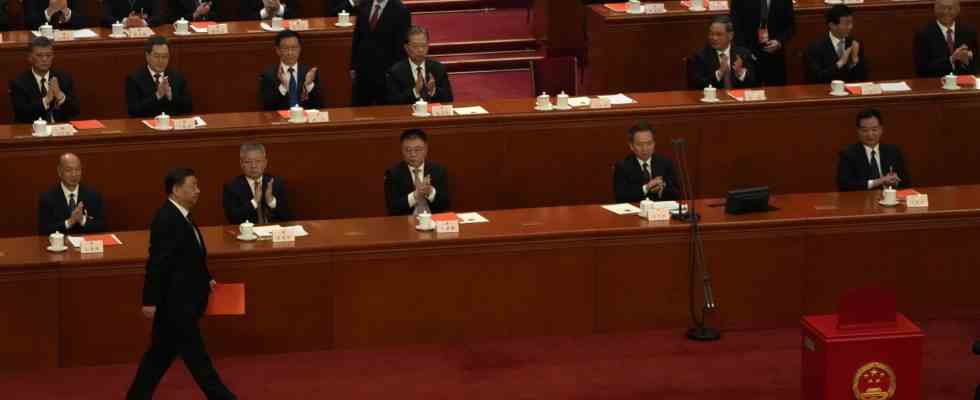Status: 03/10/2023 03:50 a.m
A new national data authority, a restructuring of financial supervision and massive job cuts: China’s People’s Congress has approved the largest government restructuring to date – and is thus also reacting to the sanctions of the West.
The Chinese People’s Congress has approved the largest government reorganization in Beijing in a long time. As expected, the nearly 3,000 hand-picked delegates voted in favor of the Chinese party leadership’s plan for institutional reform at their week-long annual meeting in Beijing.
In view of the growing pressure from the USA, the goal is a better starting position in international competition and more technological independence.
The conversion is also associated with job cuts: Five percent of the jobs are to be eliminated, as the plan shows. It is the highest number since the last extensive restructuring in 1998.
New Data Authority
A new Commission for Financial Supervision will be created, which will partially take over the previous functions of the central bank. This is intended to better coordinate the control of banks, insurance companies and innovative financial platforms as well as consumer protection.
The Ministry of Science and Technology will also be reorganized and a separate national authority will be created to manage the increasing amounts of data.
China criticizes “containment policy”
From a Chinese perspective, the US is increasingly trying to cut off China’s access to technology with export controls, sanctions and other restrictions. With this “containment policy,” the United States and the West wanted to hinder the rise of the world’s second-largest economic power, as Xi Jinping complained on the sidelines of the People’s Congress earlier this week.
At the end of last year, the US government banned the sale and import of communication devices from Chinese smartphone manufacturers and network suppliers Huawei and ZTE. These represented an unacceptable risk to national security, the US telecommunications regulator FCC justified the move at the time.
Germany is considering banning Chinese 5G components
Most recently, the federal government also considered a ban on Chinese components for the 5G network. It was less about the risk of a possible data leak than about the possible consequences of the current extreme market power of Chinese providers.
“In the face of international technological competition and the serious situation of external containment pressure, we need to further organize our technological leadership and management system to better coordinate our strengths and overcome challenges in core technological areas,” said a State Council document on restructuring . This will help China to “accelerate technological independence at a high level”.
Xi is set to be confirmed as president this Friday for an unusual third term. This approach would break with the norm, because up to now, after two terms in office and ten years, the leadership of state and party has ended. The basis for the expansion of Xi’s power was laid last year by the Communist Party Congress. It is widely expected that the People’s Congress will confirm Xi in office.

